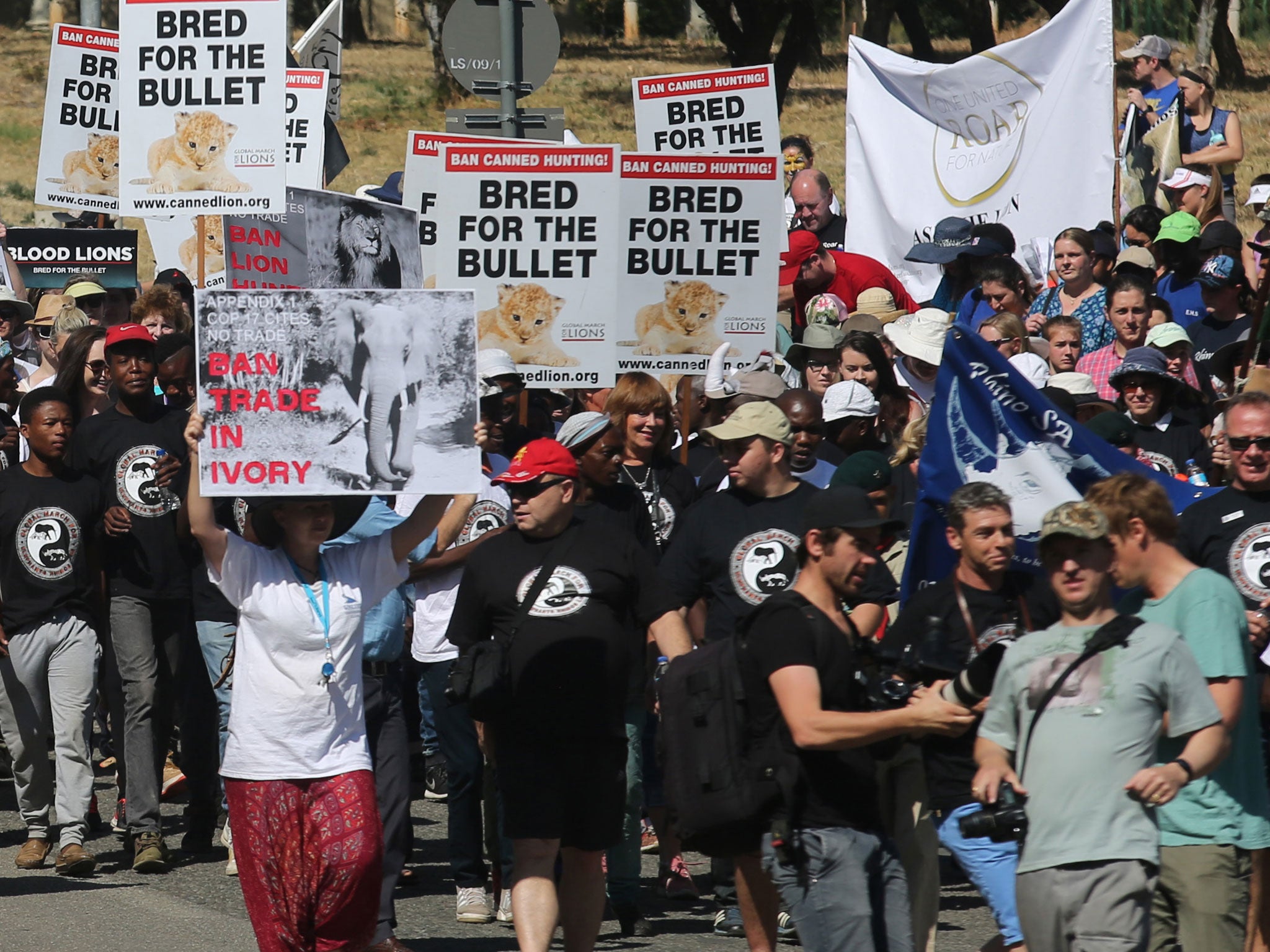Global efforts against ivory traffickers still falling short, claim campaigners
Many delegates at an international wildlife conference in Johannesburg are likely to push to tighten the international ban on the ivory trade

Your support helps us to tell the story
From reproductive rights to climate change to Big Tech, The Independent is on the ground when the story is developing. Whether it's investigating the financials of Elon Musk's pro-Trump PAC or producing our latest documentary, 'The A Word', which shines a light on the American women fighting for reproductive rights, we know how important it is to parse out the facts from the messaging.
At such a critical moment in US history, we need reporters on the ground. Your donation allows us to keep sending journalists to speak to both sides of the story.
The Independent is trusted by Americans across the entire political spectrum. And unlike many other quality news outlets, we choose not to lock Americans out of our reporting and analysis with paywalls. We believe quality journalism should be available to everyone, paid for by those who can afford it.
Your support makes all the difference.Poaching syndicates shipped large amounts of African elephant ivory last year despite global calls to dismantle the trafficking networks, conservationists have said as an international wildlife conference opened in South Africa.
The illegal ivory trade “has remained fairly constant at unacceptably high levels” since 2010, and in 2015 there was a “continuing upward trend” in the seizure of larger shipments of more than 100 kilograms, according to a document released by organisers. The transfer of big amounts of ivory indicates the key role of organised crime in poaching, the document said.
The plight of elephants dominated the discussion on the first day of the 12-day Convention on International Trade in Endangered Species of Wild Fauna and Flora, or Cites, conference. Rhinos, sharks, pangolins, helmeted hornbills and other threatened species are also on the agenda at the meeting, which regulates trade in wild animals and plants with the aim of ensuring their survival.
Last held in Bangkok in 2013, this year's Cites conference ends on 5 October. The UN group has 183 member countries and can recommend suspending trade in wildlife with countries that don’t enforce its guidelines.
Wildlife trafficking is estimated to generate billions of pounds a year globally. Interpol is among the delegations at the conference and will discuss crime, corruption and the illegal financial flows of poaching.
Many delegates at the conference in Johannesburg are likely to push to tighten the international ban on the ivory trade, as well as close domestic ivory markets. Namibia, Zimbabwe and South Africa, however, favour the sale of their ivory stockpiles, saying the money can be funneled back into conservation operations.
The world’s main ivory consumer, China, has said it plans to close its domestic ivory market. The United States has announced a near-total ban on the domestic sale of African elephant ivory.
Ivory has been used for centuries to make carvings, jewellery, furniture, piano keys and other items. Many conservationists say criminal syndicates launder illegal supplies through legal markets that permit the sale of antique ivory pieces or ivory exempted from a 1989 international trade ban.
The number of Africa’s savannah elephants dropped by about 30 per cent from 2007 to 2014, to 352,000, because of poaching, according to a recent study. Elephant populations in Tanzania and Mozambique were among the hardest hit.
Tom Milliken, a co-author of the document released at the Cites meeting, said there are about 50 ivory seizures of more than half a ton, and sometimes as many as four tons, every year. Such big shipments indicate the involvement of organised criminal groups, said Mr Milliken, an expert with the Traffic conservation organisation.
“Nobody is really uncovering their identities and making arrests and prosecuting the people who are really behind this,” he said, adding that poaching syndicates view occasional ivory seizures as a form of “taxation” on their lucrative activity.
Associated Press
Join our commenting forum
Join thought-provoking conversations, follow other Independent readers and see their replies
Comments